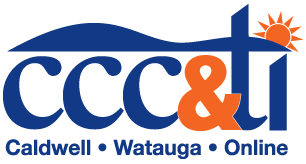Are you looking for nursing schools that don’t require TEAS test in NC? These schools may be suitable for individuals who prefer programs with alternative admission criteria, such as consideration of academic performance, prerequisite courses, letters of recommendation, personal statements, or interviews.
Table of Contents
As the need for well-trained registered nurses (RNs) grows, nursing schools’ high entrance standards provide hurdles for prospective students. The importance of entrance tests in admission adds another degree of complication to the process. Unfortunately, there aren’t many nursing schools that don’t require entrance tests.
To help prospective students, we’ve produced a list of top Nursing Schools That Don’t Require TEAS Test in NC. These schools make nursing programs more accessible, removing a possible barrier and improving admission prospects.
Explore deeper to learn about the features, prerequisites, benefits, and expenses connected with these no-entrance test nursing schools, allowing you to make an informed selection about the program that best meets your needs.
Key Takeaways
- Not all nursing schools in the US require the TEAS test.
- North Carolina has many nursing schools that offer Associate Degrees in Nursing (ADN) or Bachelor of Science in Nursing (BSN) degrees.
- These schools consider factors like your grades in other classes and your application essay instead of the TEAS test.
- You can become a nurse in North Carolina in 2–4 years, depending on the program.
- North Carolina is part of a group of states that allows you to get a license to work as a nurse in other states, too.
How To find the best nursing schools in North Carolina?
Choosing a nursing program in North Carolina requires various factors. Initially, emphasize recognized programs to assure eligibility for RN licensure via the NCLEX-RN test. Assess the program’s NCLEX-RN pass rates to determine its efficacy in preparing graduates.
Consider a two-year Associate Degree in Nursing (ADN) or a four-year Bachelor of Science in Nursing (BSN), depending on your financial situation and desired licensure pace.
To finance your education, consider several financial choices, such as loans, scholarships, grants, or part-time jobs. If you work while attending school, be sure the program is flexible enough to accommodate part-time, hybrid, or entirely online choices. You can also check our article on Scholarships For Students In North Carolina.
Inquire about clinical requirements, location, and placement aid for online programs, particularly if you are an out-of-state student. Clarify whether clinicals must be conducted in North Carolina or at a specific location. Always inquire about clinical placement support from your selected program.
List of Top 10 Nursing Schools That Don’t Require TEAS Test in NC
When it comes to nursing colleges, you may find hundreds of educational institutions that allow you to become a nurse in the USA. Meeting their eligibility criteria may be necessary. In most nursing schools, the applicants need to qualify for the TEAS examination. And in recent years the examination has become tough. So, it is difficult for some students to get into nursing schools.
To make it easy for you we have researched and shortlisted the top 10 nursing schools that don’t require the TEAS test in NC. These are mentioned below, let’s have a look:
1. Caldwell Community College and Technical Institute

Caldwell Community College and Technical Institute in Hudson, North Carolina, offers a two-year ADN degree that blends online and on-campus learning. The curriculum teaches skills for providing safe nursing care through interdisciplinary teamwork and evidence-based practice. The institute also provides an LPN diploma and a transitional LPN-to-ADN curriculum.
Admission criteria include completing the college application, submitting official high school and college transcripts, and passing the TEAS admissions test. Admitted students must also provide current CPR certification, pass a criminal background check, and have a negative drug screening.
Program Overview:
- Cost per Credit: $76 (in-state); $268 (out-of-state)
- Program Duration: 5 Semesters full-time
- Total Credits Required to Graduate: 47
- School Status: Public
- NCLEX-RN Pass Rate: 89.19%
- Program Accreditation: Accreditation Commission for Education in Nursing, Inc.
- School Accreditation: Southern Association of Colleges and Schools Commission on Colleges
2. Durham Technical Community College

Durham Technical Community College, located in Durham, NC, offers a thorough ADN program that prepares graduates to take the NCLEX-RN exam. The curriculum takes an integrative approach, combining clinical and classroom experiences. Clinicals encompass 6to 12-hour shifts, including days, nights, and weekends, to imitate real-world nursing conditions.
Admission requirements include a completed college application, official transcripts, fulfillment of prerequisites, and completion of a criminal background check and drug screening.
Program Overview:
- Cost per Credit: $76 (in-state); $26out-of-stateate)
- Program Duration: Two years full-time
- Total Credits Required for Graduation: 70
- School Type: Public
- NCLEX-RN Pass Rate: 89.74%
- Program Accreditation: Accreditation Commission for Education in Nursing
- School Accreditation: Southern Association of Colleges and Schools Commission on Colleges
3. Methodist University
Methodist University offers both a standard Bachelor of Science in Nursing (BSN) degree and a fully online RN-to-BSN pathway. They also offer an online certificate in nursing education, an MSN in administrative leadership, and a DNP in executive leadership.
Admission requirements include pre-nursing coursework, general education core subjects, a minimum GPA of 2.8, a Kaplan nursing entrance exam score of at least 65, and an interview. Accepted students must complete immunization requirements, take a health exam, pass a drug test, pass a criminal background check, and have current Basic Life Support (BLS) CPR certification.
Program Overview:
- Cost per Credit: $435
- Program Duration: 4 years full-time
- Total Credits Required: 92 credits
- School Type: Private
- NCLEX-RN Pass Rate: 100%
- Program Accreditation: Commission on Collegiate Nursing Education
- School Accreditation: Southern Association of Colleges and Schools Commission on Colleges
4. Southeastern Community College

Southeastern Community College in Whiteville, North Carolina, offers a two-year flexible ADN and LPN degree program that includes both online and on-campus components. The curriculum includes vital courses such as pharmacology, developmental psychology, holistic health principles, and an introduction to ethics.
To apply, individuals must meet normal college entrance requirements, provide official transcripts, complete a preparation checklist, and have a cumulative GPA of 2.5 or higher.
Program Overview:
- Cost per Credit: $76 (in-state); $268 (out-of-state)
- Program Duration: 5 semesters full-time
- Total Credits Required to Graduate: 69
- School Status: Public
- NCLEX-RN Pass Rate: 68.18%
- School Accreditation: Southern Association of Colleges and Schools Commission on Colleges
5. Wake Technical Community College

Wake Technical Community College, situated in Raleigh, NC, offers a two-year Associate Degree in Nursing (ADN) program at its Perry Health Sciences Campus. The college interacts with healthcare organizations to provide clinical training and incorporates work-based learning. Students benefit from resources such as a simulation suite and an EMS ambulance bay. The application process entails submitting both an application and official transcripts.
Program Overview:
- Cost per Credit: $5,472 (in-state); $19,296 (out-of-state)
- Program Duration: 5 semesters full-time
- Total Credits for Graduation: 72 credit hours
- School Type: Public
- NCLEX-RN Pass Rate: 91.28%
- Program Accreditation: Accreditation Commission for Education in Nursing
- School Accreditation: Southern Association of Colleges and Schools
6. Pfeiffer University

Pfeiffer University’s BSN program requires students to complete two years of upper-division nursing coursework and clinicals after two years of core classes. Before submitting their Nursing CAS application, prospective applicants must complete all general education and required scientific class requirements.
In addition, they must produce official transcripts, a personal essay, and proof of community service. Pfeiffer University also offers an online RN to BSN curriculum.
Program Overview:
- Cost per Credit: $676
- Program Duration: 4 years (full-time) for BSN; Total Credits Required to Graduate: 125 credits (BSN) and 120 credits (RN-to-BSN)
- School Type: Private
- NCLEX-RN Pass Rate: 90%
- Program Accreditation: Commission on Collegiate Nursing Education
- School Accreditation: Southern Association of Colleges and Schools Commission on College.
7. Rowan-Cabarrus Community College
Rowan-Cabarrus Community College, in Salisbury, NC, provides a two-year associate degree in nursing (ADN). The college works with the University of North Carolina’s RN to BSN program to help students achieve the prerequisites for that degree.
Applicants meet the prerequisites, are interviewed by an allied health counselor, and if qualified, proceed to admission testing. Successful candidates must pass CPR certification, a drug test, a physical exam, current vaccinations, and an orientation/readiness nursing class.
Program Overview:
- Cost per Credit: $76 (in-state); $268 (out-of-state)
- Program Duration: Two years (full-time)
- Total Credits Required: 70
- School Type: Public
- NCLEX-RN Pass Rate: 81.08%
- Program Accreditation: Accreditation Commission for Education in Nursing
- School Accreditation: Southern Association of Colleges and Schools Commission on Colleges
8. Belmont Abbey College
Belmont Abbey College’s BSN program takes a comprehensive approach that combines medicine, liberal arts and sciences, and Catholic healthcare principles. Current college students have a preference for admission. Prospective students must fill out an online application, pay the appropriate fee, and maintain a cumulative GPA of 2.8 or above.
Prerequisite coursework, a background check, fingerprinting, a drug screen, and obligatory vaccines are all additional requirements.
Program Overview:
- Cost per Credit: $650
- Program Duration: 4 years full-time
- Total Credits Required: 129 credit hours
- School Type: Private
- NCLEX-RN Pass Rate: 86.52%
- Program Accreditation: Commission on Collegiate Nursing Education
- School Accreditation: Southern Association of Colleges and Schools Commission on Colleges
9. University of North Carolina at Chapel Hill
The University of North Carolina at Chapel Hill provides an innovative BSN and Accelerated BSN (ABSN) curriculum. Prospective students’ transcripts can be informally evaluated to verify credit transferability.
BSN applicants must have 60 core credits, a minimum GPA of 2.8, and have completed three key science prerequisites: psychology, biology, statistics, or chemistry. Applicants to the ABSN program must have a minimum 3.0 GPA, have completed all science prerequisites, and have no pass/fail marks in core sciences.
Program Overview:
- Cost per Credit: $12,314 BSN, $18,000 ABSN (in-state); $44,000 BSN, $60,000 ABSN (out-of-state)
- Program Duration: 4 years BSN; 5 semesters ABSN (full-time)
- Total Credits Required to Graduate: 60 credits BSN; 60 credits ABSN
- School Status: Public
- NCLEX-RN Pass Rate: 90.4%
- Program Accreditation: Commission on Collegiate Nursing Education
- School Accreditation: Southern Association of Colleges and Schools Commission on Colleges
10. Craven Community College

Craven Community College offers both an Associate Degree in Nursing (ADN) and an LPN-to-ADN program, which allows graduates to sit for the NCLEX and practice as registered nurses. LPN-to-RN students who achieve entry requirements enter the third semester of the normal ADN curriculum.
A regular college application, an online ADN application, passing the Test of Essential Academic Skills (TEAS), being a Certified Nursing Assistant (CNA), taking prerequisite classes with a minimum GPA of 2.5, and CPR certification are all required.
Program Overview:
- Cost per Credit: $76 (in-state); $268 (out-of-state)
- Program Duration: 5 Semesters (full-time)
- Total Credits Required: 67 credits
- School Type: Public
- NCLEX-RN Pass Rate: 83.93%
- Program Accreditation: National League for Nursing Commission for Nursing Education Accreditation
- School Accreditation: Southern Association of Colleges and Schools Commission on Colleges
FAQs
1. Is North Carolina part of the nursing compact?
Yes, North Carolina is a member of the Nursing License Compact (NLC), which allows you to get a multi-state license through the North Carolina State Board of Nursing. This license allows you to practice in any member state, including adjacent Tennessee, Virginia, and South Carolina.
2. Is it possible to obtain a Registered Nurse (RN) qualification through online education in North Carolina?
The University of North Carolina at Charlotte provides a variety of nursing programs to cater to the educational aspirations of students seeking to advance their nursing knowledge. Students who have a desire to obtain an undergraduate nursing degree in North Carolina through online means may find the 100% online, 12-month RN-to-BSN completion program to be a suitable option.
3. How long does it take to obtain a North Carolina nursing license?
Getting a registered nurse (RN) license in North Carolina usually takes 2-4 years. The majority of this time is spent earning your degree. The Duration of time it takes to acquire your license depends on whether you pursue a two-year ADN or a four-year BSN.
4. What is the process for getting an RN license in North Carolina?
To earn an RN license in North Carolina, you must first complete an accredited ADN or BSN school, then submit a license application and a $75 application fee to the North Carolina Board of Nursing, pass the NCLEX-RN exam, and go through a criminal background check.
5. Are there profitable nursing wages in North Carolina?
Registered nurses (RNs) in North Carolina earn an average yearly pay of $77,440, while nurse practitioners (NPs) earn an average of $114,450, according to the Bureau of Labor Statistics. While these wages are above the state’s average of $56,220 for all occupations, RNs, and NPs in North Carolina are paid less than the national average for their respective jobs.
Conclusion
All the above-mentioned nursing schools allow you to get a nursing degree in North Carolina. Most importantly, there is no need to qualify for the TEAS test to get admission. These educational institutions are nursing schools that don’t require TEAS test in NC. Just meet the simple eligibility criteria and needs, and you can get admission to nursing degrees.












Add Comment